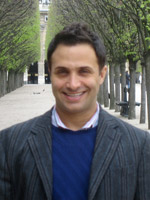Clifford Rosky, Fear of the Queer Child, 61 Buff. L. Rev. (forthcoming 2013), available at SSRN.
For the nascent lesbian and gay rights movement (before “queer” was repurposed), children and young adults were the most taboo of rights topics. Gay rights meant sexual liberation, as popularized in films like “Cruising” and songs like the Village People’s “YMCA.” Apart from Harvey Fierstein’s gay mama role in “Torch Song Trilogy,” queer parents were invisible. Widespread allegations of “recruiting” young people led advocates to avoid discussions of queer influences on children. As a gay youth activist in the mid-1980s, I remember the resistance and anxiety around gay youth issues within the national and local gay rights movement. Even in the ensuing decades, advocates’ references to gay and lesbian parents defensively emphasized similarities to straight parenting. Only recently have we begun to consider differences between queer and straight parents without a heterosexist lens. Pop culture, from “Modern Family” to the “New Normal,” has recently given us a window for reconsideration, albeit one rife with bubble gum stereotypes.
Cliff Rosky avoids such traps with his latest work, Fear of the Queer Child. There, he unpacks the long history of heterosexism in parenting and delineates its remnants. In his previous work, Like Father, Like Son: Homosexuality, Parenthood, and the Gender of Homophobia, Rosky assessed judicial treatment of gay and lesbian parents though gender-differentiated stereotypes in custody and visitation cases. There, his deft articulation of the interrelationship between sexual identity and gender stereotypes in the parenting context stood out as especially new. His assertion was that gender – of the parent, the child and the judge – plays a dominant role in the elaboration of homophobic and heterosexist stereotypes about gay and lesbian parents. The proof he deployed confirmed my long-held belief in the centrality of gender to heterosexism. In particular, he found that “recruitment” was a charge levied against parents of sons, and explored how the male judges were more likely to adhere to stereotypes about gay and lesbian parents. Like Father, Like Son avoided a facile identitarianism and did not get stuck in a lengthy refutation. Fear of the Queer Child holds even more potential to affirm the positive and yes, different, nature of queer parenting.
Rosky extricates heterosexism’s genealogy with regard to children, a task necessary to dispose of this baggage. The fear of the queer child is “the fear that exposing children to homosexuality and gender variance makes them more likely to develop homosexual desires, engage in homosexual behaviors, deviate from traditional gender norms, or identify as lesbian, gay, bisexual, or transgender.” Rosky draws on multiple historical periods to assert the presumed “contagion” of sodomy and the concomitant fear of initiation of children into homosexuality. Fear drove the purge of homosexuals from civil service jobs, including teaching, in the 1950s, and persisted well into the post-Stonewall era with the efforts of Anita Bryant and California’s movement to “Save Our Children” from lesbian and gay teachers in the late 1970s. Rosky traces this history to the present where opponents of LGBT rights do not trade in such starkly homophobic stereotypes; instead, they deploy more “palatable” indoctrination claims to achieve their ends. But it is not just opponents of LGBT rights who credit these stereotypical notions of gay parenting. Rosky shows how the LGBT movement has adopted a defensive and even “apologetic” response to false allegations: “[b]y focusing on the empirical questions of how children become queer, LGBT advocates have sought to bracket the normative question of whether children should become queer.” Although he pulls some of his punches, it is clear that Rosky finds that the “fear of the queer child” is not solely a heterosexual phenomenon. LGBT advocates pursue a strategy that leads them to adhere to assertions that LGBT parenting is just like straight parenting. For example, LGBT advocates did not embrace empirical studies that suggest LGBT parenting leads to different outcomes than heterosexual parenting. Likewise, they overlook studies that show children of LGBT parents are more likely to understand gender in nonconformist ways or even be queer – and that could support arguments that queer parenting can be better. This resonated for me as a queer parent. Sameness discourses may have a strategic value even if they may undermine queer parenting’s contributions, notably a more egalitarian division of labor and support for nontraditional gender roles.
There are contexts however, where the LGBT fear of the queer child takes on a more normative bent. LGBT interventions on parenting in the current French debate over marriage equality reflect this same defensive posture. Many gay parents and parents-to-be embrace the central role of a strong female figure in a child’s life – a reflection of the deep legitimacy of the sex binary in France.
Rosky artfully interweaves gender and sexuality theory to define family law’s anti- queer parenting posture. Rosky’s most compelling conclusion moves beyond the queer child taboo to advocate that the state should adopt a neutral posture with regard to the straight or queer positionality of parenting and of children. His “no promo hetero” posture with regard to childrearing would bar the state from heterosexist positioning and allow families to embrace queer childhood. Rosky’s scholarship does justice for the queer kid I was in the 1980s by calling out heterosexist presumptions (within gay rights and progressive movements) that sidelined those of us in the gay youth movement. His work reminds us of the importance of undermining heterosexist legal regimes and the (more) pointed and active role progressive scholars should play in moving beyond the fear of the queer child.








